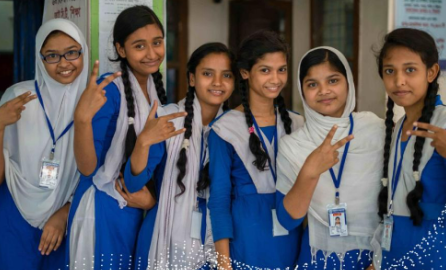Challenging gender norms and increasing access to family planning services in Burkina Faso

-
Gender marker: G2-Promotes gender equality as a primary objective
-
Period of implementation: 2019 - 2022
-
Amount: EUR 6,000,000. The whole “Programme Population” was EUR 25,000,000; EUR 16,000,000 were given to NGOs to tackle SRH, GBV and civil status. Good practices carried out by NGOs make up this story. On top of the EUR 16,000,000, EUR 9,000,000 were given to UNICEF to tackle civil status, to the Superior Institute for Population Sciences (ISSP) to undertake researches on GBV, SRH and civil status (research institute), and to consultancies for monitoring and communication.
-
Geographical area: Sub-Saharan Africa
-
Implementing partners: 5 consortia of international and national NGOs (lead partner for each project in bold):
-
PRODEC : EDUCO, Terre des Hommes, Association Burkinabè pour le Bien-Etre Familial (ABBEF), Children Believe - Centre-Nord, Nord et Sahel
-
Promotion Sociale : ACRA ,ASMADE, Sant’Egidio, Fédération Nationale des Femmes Rurales du Burkina Faso (FENAFERB), Mani Tese - Centre, Centre-Sud et du Plateau Central
-
PRODEPS : Save the Children & Le Réseau Africain Jeunesse Santé et développement au Burkina Faso (RAJS/BF) - Cascades, Hauts Bassins et Sud-Ouest
-
PEPS : Terre des Hommes, Association Burkinabè pour le Bien-Etre Familial (ABBEF), Association des Municipalités du Burkina Faso (AMBF), Planète Enfants et Développement, Programme de Marketing Social et de Communication pour la Santé (PROMACO) - Boucle du Mouhoun et Centre-Ouest
-
PROSARE : Plan International, Association Burkinabè pour le Bien-Etre Familial (ABBEF), Jhpiego - Centre Est et Est
Moreover, each consortium funded 6 to 50 Community-based organisations to carry out awareness-raising activities.
-
-
Links to the project:
-
GAP III’s Areas:
-
Gender-Based Violence
-
Sexual and reproductive health and rights
-
How to increase access to family planning services nationwide? Ask the actors of the Programme Population who came up with innovative approaches challenging gender norms and providing practical solutions. This EU-funded programme aimed to improve the management of population dynamics from several angles: increasing birth registration, reinforcing access to family planning services, and addressing gender-based violence. From a state perspective, managing population growth allows the adaptation of services to the population's needs. From an individual perspective, the programme reinforced access to rights through birth registration, and enjoyment of rights and opportunities through family planning and the promotion of gender equality.
Strong support underpinned the approach. When the EUD launched the programme, resources included a gender profile for Burkina Faso (2016), a national gender strategy (2014, and then 2019), and a national family planning policy (2017, and then 2021). Gender indicators are used in the narrative reports. Implementing partners included five consortia of international and national NGOs.
Target groups included women in unions, adolescents (girls and boys), parents, husbands, teachers, mobile health workers, and community health centres. All were engaged in both urban and rural areas, and the rural component was essential to reach people who are often economically disadvantaged and disconnected from health services.
As one can tell from the diverse approach (from streamlining birth certificate bureaucracy to targeting GBV), the project sought to tackle the problem from several different directions. Some of the successful actions carried out include training medical centre personnel and mobile health agents on sexual and reproductive health (SRH) and modern family planning methods; involving men on SRH and prevention of GBV; support to local CSOs and health centres to carry out local sensitisation on GBV and SRH; awareness-raising on obtaining birth certificates and accompaniment of beneficiaries to obtain late birth certificates.
Men´s involvement was a critical component of the project. Success would help transform family and gender norms, helping both immediately while also easing the path for future work. To that end, one important action was running "husband schools" which challenged husbands' and fathers’ responsibility for the well-being of their wives and children. For instance, fathers in Burkina Faso have almost nothing to do with the sexual education of their teenagers. Sexuality is taboo, and such educational matters are left to mothers - all beliefs that were challenged in a variety of ways.
A total of 3.6 million people were engaged in activities, including 860,000 youth. Another 15 million saw media content from the project. More concrete results were seen as well, such as modern contraception for women in unions rising from 28% in 2019 to 34% in 2022.
Therefore, if you want to still know more about the project´s findings, good practices and recommendations, do not hesitate to consult these policy briefs!
“It was during a session with other women on family planning that I was directed to Pauline, the community-based health staff to obtain all the information on family planning. Since I adopted the contraceptive method, I am much more available for my various activities. The children are in good health. Which allows us to save for other needs. Family planning allows my husband and I to wait for the right time to have our children. I am in good health, my husband too, as well as my children; the whole family is happy. Thanks to the delegation of tasks (allowing frontline community-based health staff to provide family-planning services), women no longer need to travel kilometres to get to the health centre to benefit from family planning services.” Claire Sandwidi, resident of the village and user of the family planning method
